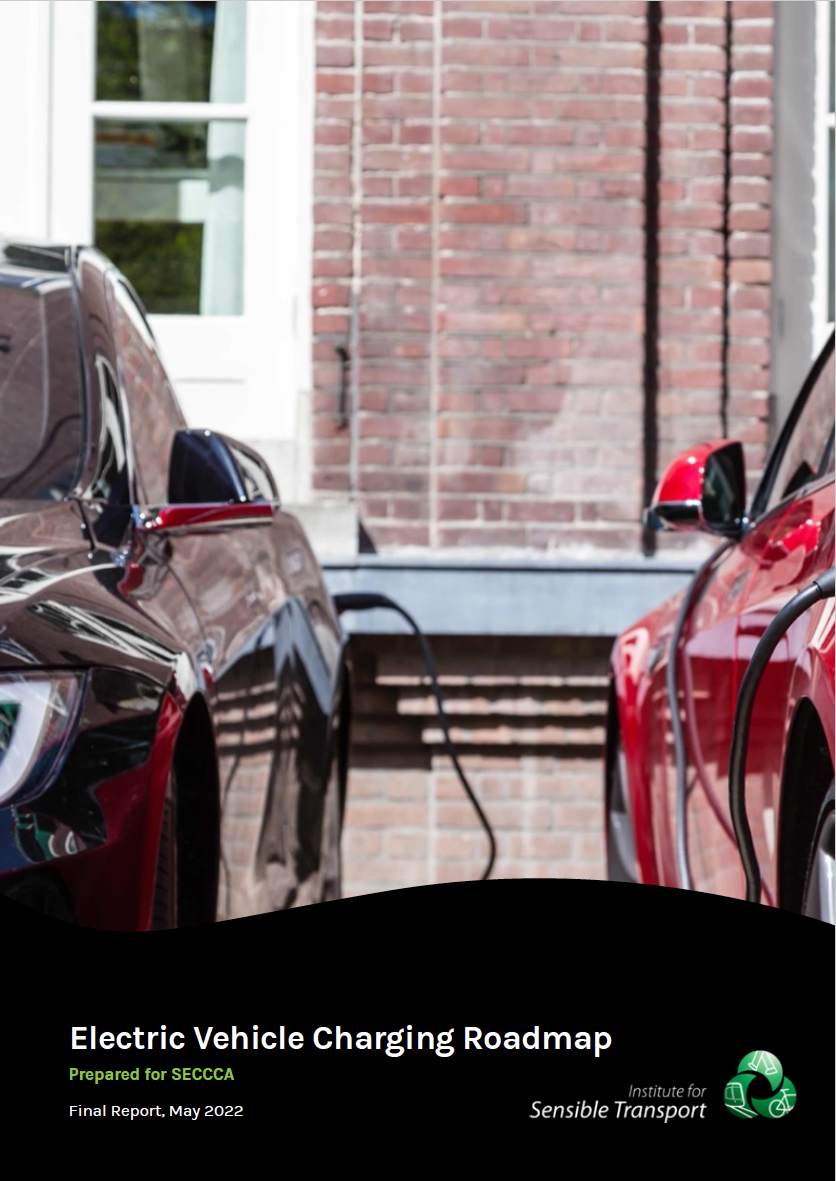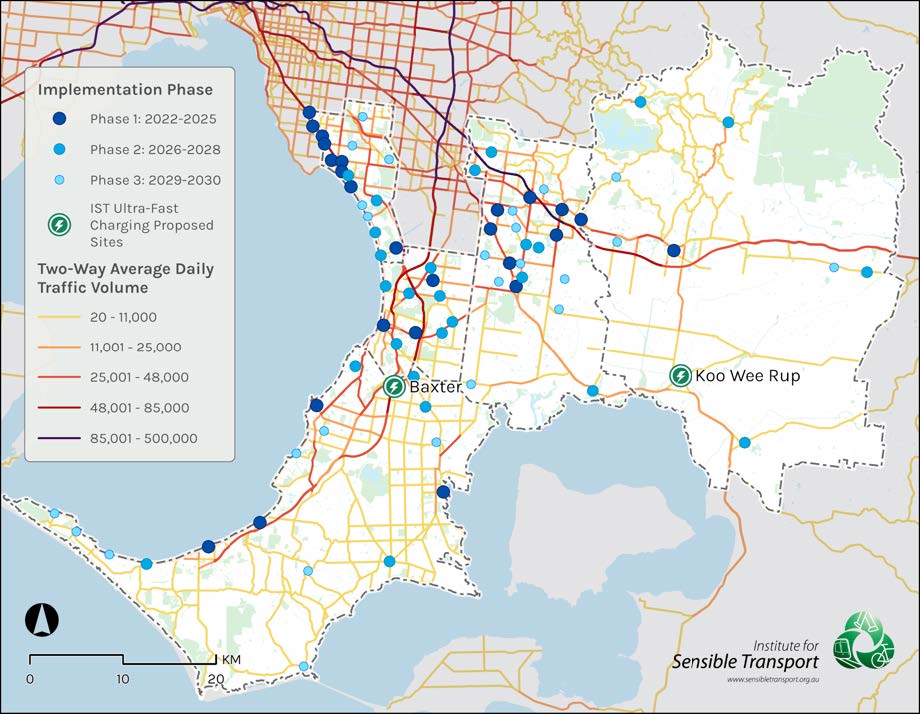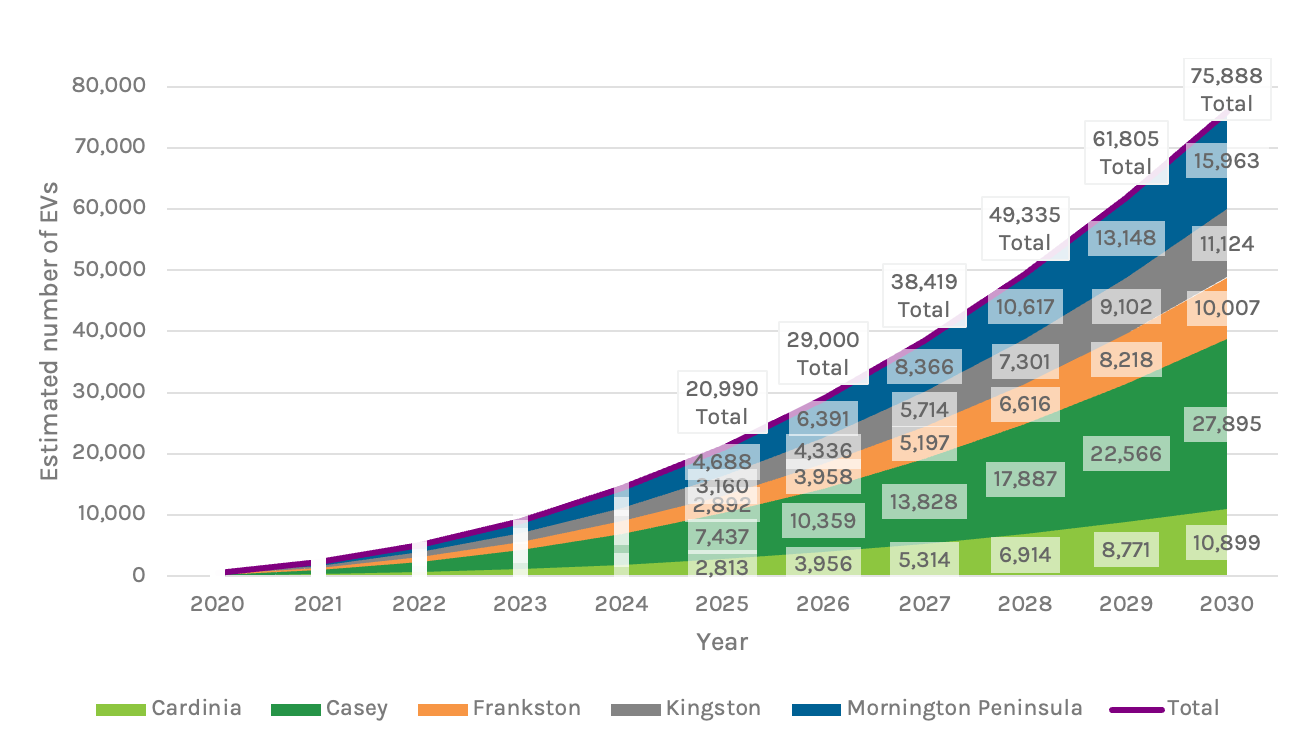Electric vehicle charging roadmap
We were commissioned by the South East Councils Climate Change Alliance to prepare an Electric vehicle Charging Roadmap for seven adjoining councils.
Location
South East region of Melbourne
Budget
$120,000
Commencement
2021
Completion
2022
Overview
We were commissioned by the South East Councils Climate Change Alliance (a coalition of south eastern Melbourne councils) to prepare an Electric Vehicle Charging Roadmap. This project provided an implementation pathway for councils, to build a network of charging infrastructure.
Our Roadmap included a detailed set of prioritised locations for future charging infrastructure. This included a combination of medium to fast chargers, as well as Ultra Fast Chargers at Baxter and Koo Wee Rup, to service high-volume roads with vehicles travelling large distances. The locations are colour coded, based on their implementation phase
What we did
In collaboration with Point Advisory, we prepared an EV Charging Roadmap that:
- Identifies optimal locations for publically available charging infrastructure
- Detailed the key issues to consider in the development of an implementation, delivered by 2030, for each member council.
- Provides coverage of future trends in electric vehicles and charging infrastructure, to help future proof the Roadmap.
Key elements of the Roadmap included:
- An overview and introduction to electric vehicles and charging infrastructure
- A framework for informing decisions on where to locate electric vehicle chargers
- An analysis of electric vehicle take up within the study area and provided forecast uptake each year to 2030
- Proposed an EV Charging Roadmap, prioritising areas based on the results of a geo-spatial evaluation framework applied across the study area, including an online, interactive map
- Estimated emissions reduction impacts of the EV charging network
- Provided advise to the client on funding options that minimise the capital and operational expenditure to local government.

The Roadmap
The map below identifies the chargers recommended as part of this Roadmap. In most cases, chargers are prioritised based on their proximity to high road traffic volumes, as well as a number of other factors




Estimating electric vehicle uptake
It can be expected that between 5% – 20% of all passenger cars owned by SECCCA residents will be EVs by 2030.
It is assumed that 8.5% of the fleet will be EV by 2030, based on the AEMO Net Zero 2050 and Steady
Progress scenario projection, with a curved growth rate applying, scaling from less than 1% to 8.5% in a non-linear way (i.e., powered or exponential).
It is estimated that there will be 20,990 EVs in the LGAs by 2025, rising to 75,888 EVs in 2030.

 More info about this project
More info about this project